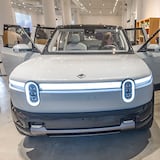On Wednesday at 1:10 a.m. the National Weather Service issued a dense fog advisory in effect until 9 a.m. The advisory is for Coffee, Jeff Davis, Bacon, Appling, Wayne, Atkinson, Pierce, Brantley, Echols, Clinch and Ware counties.
The NWS says, "Visibility one quarter mile or less in dense fog."
"Low visibility could make driving conditions hazardous," explains the NWS. "If driving, slow down, use your headlights, and leave plenty of distance ahead of you."
Fog safety: Tips from the NWS for safe travels
When a dense fog advisory is issued for your area, it means that widespread dense fog has developed and visibility can plummet to a quarter-mile or less. These conditions pose challenges for travel, so exercise extra caution on the road or consider postponing your trip if possible.
If driving through fog becomes inevitable, remember these safety guidelines:
Moderate your speed:
Slow down and allocate extra travel time to reach your destination safely.
Visibility matters:
Ensure your vehicle is visible to others by using low-beam headlights, which also activate your taillights. If available, employ your fog lights.
Avoid high-beams:
Refrain from using high-beam lights, as they create glare, making it more difficult for you to see what’s ahead of you on the road.
Maintain safe gaps:
Leave a safe distance between you and the vehicle in front of you to account for sudden stops or changes in the traffic pattern.
Stay in your lane:
To ensure you are staying in the correct lane, use the road's lane markings as a guide.
Zero visibility strategy:
In extremely dense fog where visibility is near zero, the best course of action is to first turn on your hazard lights, then simply pull into a safe location such as a parking lot of a local business, and stop.
Limited parking options:
If no designated parking area is available, pull your vehicle as far off the road as possible. Once stationary, deactivate all lights except the hazard flashers, engage the emergency brake, and release the brake pedal to ensure your tail lights are not illuminated, reducing the risk of other drivers colliding with your stationary vehicle.
By adhering to these precautions from the NWS, you can navigate foggy conditions more safely, reducing the likelihood of accidents and ensuring your personal safety.
Source: The National Weather Service





